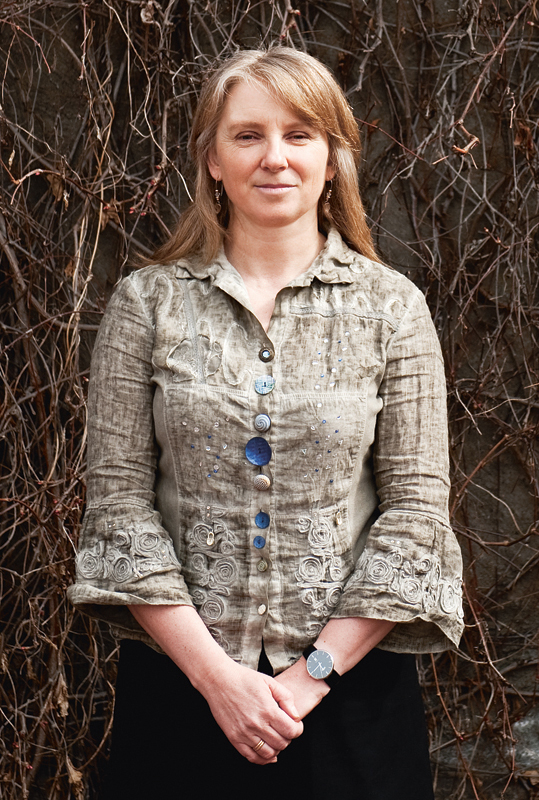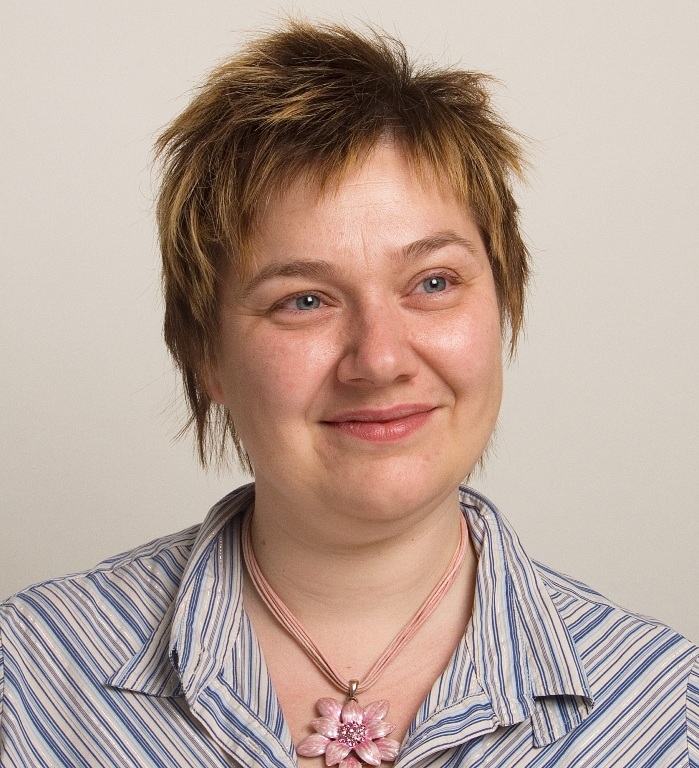Men in the minority
For generations it was usually the men who became doctors, psychologists and dentists. Now it is different. Today there are so few men applying to professional studies in medicine, psychology and dentistry that the University of Oslo is considering giving them preferential treatment.
The university management is now circulating a proposal for review in which it considers introducing additional gender points and other recruitment measures for male applicants to medicine, psychology and dentistry.
The problem is easy to see: Of those who applied for professional studies in psychology at University of Oslo (UiO) in spring 2012, only 20 percent were men, and the number of male applicants is declining. Seventy percent of those offered admission to dentistry are women. The corresponding figures for medicine are not quite so lopsided: 60 percent women and 40 percent men. Moreover, the men granted admission to these three study programmes turn down the offer more frequently than women.
The three faculties that offer these study programmes at UiO, as well as the study director Monica Bakken, charged a working group with the task of developing solutions. Their report recommends giving additional points to men in these programmes starting with admission for autumn 2013. At this time no programmes at the University of Oslo award gender points to either women or men.
As the admission regulations read today, educational institutions are permitted to favour one gender by a maximum of two additional points. The working group believes this is not enough. It recommends, with the psychology programme in mind, that the Ministry of Education and Research amend the regulations and allow more additional points to be awarded.
The working group has performed analyses. It has simulated the number of men that would have been admitted if they had received a certain number of additional points. But numerous questions arise. Does it work? What were the results for the institutions and subject areas that used gender points? And finally: Is it fair?
The effect that disappeared
The Norwegian School of Veterinary Science is the only educational institution in Norway that awards gender points to men. According to Rector Yngvild Wasteson, the additional points did not help to correct the gender balance once and for all. After the media attention subsided, the male applicants stopped rushing to the school.

“We saw a noticeable increase in male applicants during the first three years. But over time the effect gradually decreased, and now we are almost back to the level before we introduced gender points. It’s difficult to say what the reason is,” says Wasteson.
She says that the Norwegian School of Veterinary Science does not have the resources to conduct large-scale recruitment campaigns targeted towards men. Nonetheless – the school highlights its male students at education fairs and on its website.
“But it’s a balancing act. On one hand, having more male students can be good for the learning environment. But there isn’t anything wrong with being a capable young woman either,” says Wasteson.
She says she used to be sceptical towards gender points, but she has changed her mind. Now she believes that awarding gender points is an important, concrete means to an end.
“Unfair, but works well”
It is the women who receive gender points in civil engineering studies and similar programmes at the Norwegian School of Science and Technology (NTNU). Nina Kotte, the head of Jenteprosjektet Ada at NTNU, says that awarding gender points to women in civil engineering studies works brilliantly.
“Gender points are effective for studies with strict admission requirements and many applicants. For example, women comprised only 27 percent of the primary applicants to nanotechnology, a programme with very few spaces. But thanks to the gender points for women, the first class had almost 50 percent women.”
Despite this success, Kotte does not think that awarding additional points would work well with female-dominated study programmes with less strict academic requirements, such as nursing, since the difference in the applicants’ marks would be too great.

“Civil engineering studies have high status, there are many highly qualified applicants and the margins between them are extremely small. We are often talking about tenths of points. In some programmes there are only two points that separate the final 30 who are admitted,” she explains.
With such keen competition, one or two gender points can push an applicant far ahead in the queue. It is not so easy, though, when there are large differences in the applicants’ marks.
At NTNU the problem is the opposite from UiO. There, more women than men turn down offers of admission. This is why NTNU has also put extra focus on recruitment measures, such as Jenteprosjektet Ada. Important ingredients are network-building to encourage female students to complete their studies, and marketing. Instead of NTNU going to the young women, the young women come to NTNU during specially arranged programmes such as “Girls’ Day” and “IT camp”. The university pays for travel and accommodation for two to three days for several hundred participants each year, and believes this is less expensive than traditional marketing tactics.
“Many participants come to us later and say that ’this is what was really needed’. Last year, for example, 40 percent of the participants at the IT camp applied to NTNU and 25 per cent of those received admission. With these measures we reach our target group 100 percent and don’t throw away money on advertisements,” says Kotte.
But although Jenteprosjektet Ada has a proven record of success, the use of gender points for women is not universally accepted at NTNU.
“The male students think it’s unfair, and the female students don’t like the thought of being given preferential treatment. Gender points are not fair, but I don’t have a problem with it.”
Alternative
According to researcher Åse Røthing, who is currently mapping recruitment processes and scientific priorities in light of the gender balance issue at the Faculty of Theology at UiO, it is not strange that differential treatment provokes debate.
“The demand for gender balance conflicts with the meritocratic ideals in academia, that admission should be granted to the students with the best marks,” she notes.
“On average, girls earn higher marks than boys in all subjects at school. Shouldn’t this ideal then result in a majority of women in high-status study programmes?”

“Feminist demands for preferential treatment for women were based on the idea that sometimes women had a less advantageous starting point than men and, as a consequence, women and men had to be treated differently in order to achieve equality. If one argues that the school system is better suited to girls than to boys and that this is the reason girls get better marks, then gender points might be fair. If this is not the reason, then it is reasonable to ask whether it is fair for boys to get extra points for putting in less effort at school than girls.”
The university management has asked Røthing to write an academic commentary to the report on additional points for male applicants. She argues that it is not possible to defend additional points for men from the perspective of fairness.
But if it is unfair to move men with poorer marks ahead in the queue, how can the university ensure that women do not dominate in terms of numbers? Røthing proposes an alternative:
“Study spaces reserved specifically for men, which women are not eligible to compete for.”
“Financial incentives for male applicants so that more of them accept an offer of admission, such as an additional grant for men who complete the course of study.”
Male values?
When Ansgar Gabrielsen, the former Minister of Trade and Industry, introduced the requirement that boards of directors had to be comprised of 40 percent women, this was based on the conviction that women and men are different and women have a different leadership style than men, and that companies benefit from this. Røthing claims that the supporters of gender points often follow the same logic: The professions function best when the values of both genders are represented.
“This approach reproduces conceptions of static gender differences and turns the focus away from variation. In addition, the report does not cite research which documents that clients actually want to see a service provider of the same gender or that a gender-balanced research group results in better research than one with an excess of women,” says Røthing.
“It’s rather cheeky to claim that men will guarantee the quality of research and that a research group comprised mostly of women cannot produce equally good research.”
The report emphasizes the diversity of future professionals and wants to use additional points for men to ensure this. Røthing points out, however, that studies of school performance show that the level of the parents’ education is far more significant than the gender of the applicants.
“It is therefore worth asking whether applicants whose parents have a low level of education should, just like male students, be awarded additional points for the relevant study programmes.”
UiO has set a deadline of 1 March for submitting input on gender points. The university management will then prepare its opinion, and by 15 April it will forward any input to the Ministry of Education and Research.
Translated by Connie Stultz.
Gender points are awarded to the underrepresented gender in some study programmes. These are given as part of the overall school points and are calculated as part of the quota for first-time diplomas.
Female applicants receive two points for:
- two- and three-year engineering programmes (except for chemistry)
- maritime studies at the university-college level
- agricultural studies at public university colleges
- civil engineering studies (integrated master’s programme) at NTNU (except for industrial design and industrial chemistry and biotechnology)
Male applicants receive two points for:
- veterinary medicine and veterinary nursing at the Norwegian School of Veterinary Science.
Source: Norwegian Universities and Colleges Admission Service (NUCAS)
On 23 August 2011, the management of the Faculty of Social Sciences, the Faculty of Medicine and the Faculty of Dentistry appointed a working group to prepare a report on the use of measures to improve the gender balance in professional study programmes.
The working group’s report focuses specifically on the awarding of additional points to the underrepresented gender for admission to professional study programmes in medicine, dentistry and psychology at the University of Oslo. The report has been circulated for review and input must be submitted by 1 March. By 15 April any input will be forwarded to the Ministry of Education and Research.
